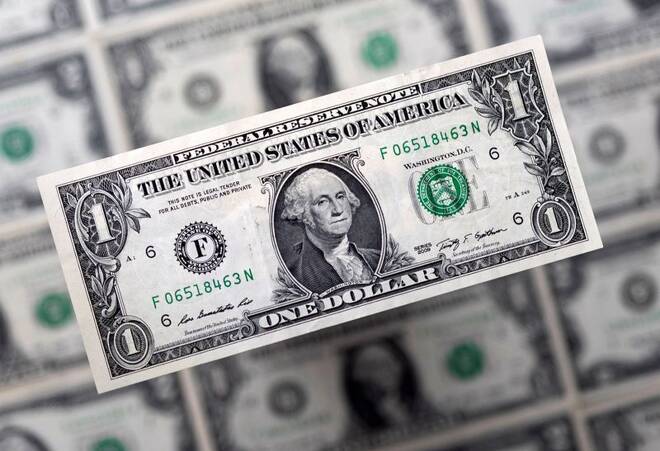Advertisement
Advertisement
Fed officials debate higher vs. just longer after January inflation jump
By:
By Howard Schneider WASHINGTON (Reuters) - Continued high inflation won't necessarily force the Federal Reserve to raise interest rates higher than expected, but monetary policy will have to remain tight "until well into 2024," Atlanta Fed President Raphael Bostic said in an essay released on Wednesday.
By Howard Schneider and Ann Saphir
WASHINGTON (Reuters) -U.S. Federal Reserve officials were divided Wednesday over whether recent high inflation data and a continually hot jobs market will require even more restrictive interest rates, or just patience in maintaining tight monetary policy for a longer period of time.
In remarks to a business event in Sioux Falls, South Dakota, Minneapolis Fed President Neel Kashkari said he was inclined “to push up my policy path” after a recent government report showed the Fed’s preferred inflation index accelerated in January to a 5.4% annual rate, more than double the Fed’s 2% target and slightly faster than the month before.
Kashkari, a voter on Fed rate policy this year, said he had not made a final call yet on a new projection for the target federal funds rate. But “at this point…I lean towards continuing to raise further,” beyond the 5.4% level that he previously thought would be adequate to lower inflation.
Fed officials will submit new projections at a meeting in three weeks, and analysts and investors expect the median rate seen by officials for the end of 2023 will move perhaps a quarter point higher than the 5.1% anticipated as of December.
Traders of futures tied to the Fed’s policy rate on Wednesday saw about an even chance the rate will get to a range of 5.5%-5.75% by September, versus the 5.25%-5.5% range priced in since a Labor Department report in early February showed U.S. employers increased payrolls much more than expected in January.
The federal funds rate is currently set in a range from 4.5% to 4.75% after a rapid set of rate increases last year lifted it from a near zero level. Officials expect to tack on another quarter of a percentage point at their next meeting.
The jump in inflation in January, however, has not prompted a universal call to respond. Of those who’ve spoken publicly since the new inflation data was released on Friday, Kashkari is the first to suggest a higher interest rate might be warranted.
Atlanta Fed President Raphael Bostic said in an essay released on Wednesday that he still feels a federal funds rate set in a range of from 5% to 5.25% would be adequate, an outlook he has maintained despite last week’s high inflation reading and an unexpectedly strong January jobs report.
However he said the policy rate would need to be kept at that level “until well into 2024,” with the Fed committed to not “reversing course” until it is clear inflation is subsiding.
The aim, Bostic said, is to strike a “delicate balance” that raises the target federal funds rate to a level the economy can absorb without a dramatic downturn, but that will also slow demand and curb inflation over time.
“This will allow tighter policy to filter through the economy and ultimately bring aggregate supply and aggregate demand into better balance,” said Bostic, who does not have a vote this year on the Fed’s interest rate policy.
(Reporting by Howard Schneider; Editing by Paul Simao and Andrea Ricci)
About the Author
Reuterscontributor
Reuters, the news and media division of Thomson Reuters, is the world’s largest international multimedia news provider reaching more than one billion people every day. Reuters provides trusted business, financial, national, and international news to professionals via Thomson Reuters desktops, the world's media organizations, and directly to consumers at Reuters.com and via Reuters TV. Learn more about Thomson Reuters products:
Latest news and analysis
Advertisement
